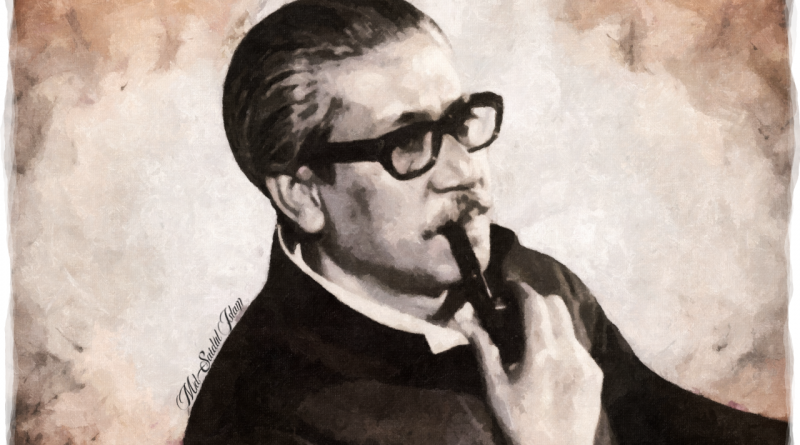The father of the Nation Bangabandhu
The father of the Nation Bangabandhu
The father of the Nation Bangabandhu Sheikh Mujibur Rahman is the dreamer of Independent Bangladesh. He is honored as the great Bengali of the formerly thousands of times. We owe his attractive leadership for making us a great nation. The great man was born on 17th March 1920 Tungipara in Gopalganj. He completed his study in 1947 at the Kolkata Islamic council. Latterly, he joined politics and did his swish for the Bengali nation to make them free from the oppression of the pak autocrats. For that, he was arrested and tortured by Pakistani autocrats several times. After that Bangabandhu addressed a meeting his history address on the 7th March 1971 at a mammoth gathering at the race course marking a turning point for the Bengali nation. His speech had come a subject of fear to the pak autocrats. As a result, he was arrested 25th march 1971. And was taken to Pakistan. After the 9th month of our emancipation war, we got our independence on 16th December 1971. He was transferred back home after emancipation. He was assassinated by some deceived army officers on 15th August 1975 along with the ultimate of his family members except for his two daughters.
or,
Bangabandhu Sheikh Mujibur Rahman was an exceptional leader who played a crucial role in the liberation of Bangladesh from Pakistani rule through a bloody war in 1971. Born into an aristocratic Bengali Muslim family on March 17, 1920, in Tungipara, Gopalganj district, Mujib completed his Matriculation from Gopalganj Missionary School in 1942, Intermediate of Arts from Kolkata Islamia College in 1944, and BA from the same college in 1947. From a young age, Mujib demonstrated strong leadership skills, participating in the Language Movement in 1952 and Mass Movement in 1969. In the 1970 election, Bangladesh Awami League, under his dynamic leadership, secured an absolute majority, but the Pakistani rulers refused to hand over power. Despite his arrest by the Pakistani Army, Mujib declared the independence of Bangladesh on the first hour of March 26, 1971, leading the country into a war of liberation. Bangladesh won its independence on December 16, 1971, under his inspiring leadership. Mujib was rightfully revered by the people of Bangladesh, who gave him the title “Bangabandhu” meaning “Friend of Bengal,” and “The Father of the Nation” for his genuine love and dedication to his country. Sadly, Mujib was assassinated on August 15, 1975, by some misguided military personnel, resulting in a great loss for Bangladesh and the world.
or,
Bangabandhu Sheikh Mujibur Rahman was a charismatic leader and the founding father of Bangladesh. Born on March 17, 1920, in Tungipara, a small village in present-day Bangladesh, he dedicated his life to the fight for the independence of his people from colonial and authoritarian rule. Bangabandhu, as he is affectionately known, was a gifted orator and a tireless organizer who led the Awami League, a political party that championed the cause of Bengali nationalism and democracy. He played a pivotal role in mobilizing the masses and forging a united front against the Pakistani military regime, which had imposed a repressive regime on East Pakistan. In March 1971, Bangabandhu called for a non-cooperation movement, which led to a crackdown by the Pakistani military. The subsequent brutal repression and genocide against Bengalis forced millions of refugees to flee to neighbouring India, triggering a war of liberation. On March 26, 1971, Bangabandhu declared the independence of Bangladesh, and the nine-month-long war ended with the Pakistani army’s surrender on December 16, 1971. Bangabandhu became the first President of Bangladesh and steered the nation through its early years of nation-building, focusing on economic development, social justice, and regional cooperation. However, his leadership was cut short when he was assassinated along with most of his family members on August 15, 1975, in a military coup. Today, Bangabandhu’s legacy lives on in Bangladesh’s national consciousness, where he is revered as the father of the nation. His vision of a democratic, secular, and prosperous Bangladesh, free from poverty and injustice, continues to inspire the people of the country. His unwavering commitment to the cause of human dignity and freedom makes him a towering figure in the history of the subcontinent and a source of inspiration for generations to come.

